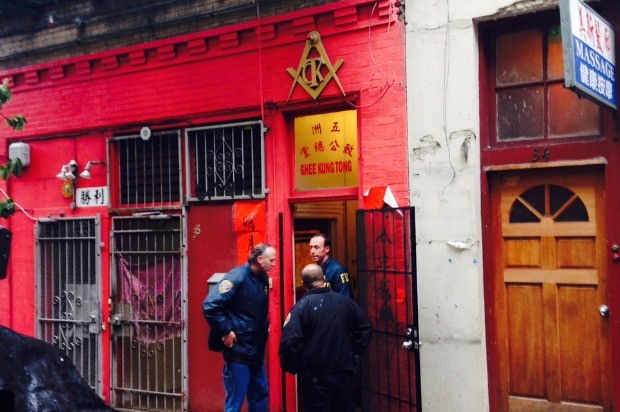
A federal judge in San Francisco issued a protective order today enabling 25 defendants and their lawyers in a corruption, money laundering and arms dealing case to begin looking at four years of prosecution evidence, but requiring them to keep it confidential.
The defendants in the case include suspended state Sen. Leland Yee, D-San Francisco/San Mateo; Chinatown fraternal association leader Raymond “Shrimp Boy” Chow; and former San Francisco school board president Keith Jackson.
U.S. District Judge Charles Breyer wrote that the confidentiality requirement requested by prosecutors was “both practical and appropriate” to safeguard sensitive material threaded through the reports and secretly made wiretaps and recordings.
The sensitive information, Breyer said, includes details about undercover agents; witnesses; people who are being investigated but have not been charged; and others, including unidentified public officials, whose names appear but who are not suspected of any crimes.
Breyer said the alternative of requiring prosecutors to remove the sensitive information from the large amount of material would cause an unacceptable delay of many months in the trial, which hasn’t yet been scheduled.
Twenty-four of the 25 defendants who have appeared before Breyer thus far had agreed to the protective order, but Chow, who heads the San Francisco-based Chee Kung Tong, opposed it. The order will apply to all 25 including Chow.
Chow’s lawyer, Tony Serra, argued that the confidentiality mandate violated Chow’s First Amendment free-speech right to try to counter a “national media frenzy” caused when prosecutors released a 137-page FBI affidavit in the case on March 26.
Chow’s attorney alleged in a brief filed last week that the federal prosecutors had “attempted to assassinate his character in the media” through the “one-sided accusations” in the affidavit.
The prosecution evidence includes 10,000 pages of reports and two terabytes of digital audio and video recordings made by undercover agents beginning in 2010, according to Breyer’s ruling.
“Given the volume of the sensitive material and the fact that it is so enmeshed with non-sensitive material, the protective order negotiated between the government and all of the other defendants in the case is both practical and appropriate,” Breyer wrote.
The order allows defense lawyers, their staffs and the defendants to look at the evidence, but the defendants must review it in their lawyers’ offices without equipment that would enable them to copy it. Similar arrangements must be made for defendants who are being held in jail without bail while awaiting trial.
The defendants must sign copies of the order agreeing not to disclose the information.
Breyer said the defendants can seek future hearings before him on whether individual pieces of evidence can be made public.
An April 3 grand jury indictment in the case named a total of 29 defendants, but four have not yet appeared before Breyer because they are fugitives or still in the process of obtaining a defense lawyer.
Breyer has scheduled a status conference in the case for July 24. Prosecutors from the office of U.S. Attorney Melinda Haag have said they expect to obtain a revised grand jury indictment with additional racketeering charges and possibly additional defendants by then.
The 29 defendants in the current indictment are accused of an array of charges, some of which appear to be unrelated.
Yee and Jackson, a political consultant, are charged with conspiracy and six counts of honest-services fraud for allegedly funneling campaign contributions to Yee in exchange for political services for donors. The purported donors were actually undercover FBI agents.
Yee, Jackson and Daly City dentist Wilson Lim also face a charge of conspiring in a never-completed international arms deal for an undercover agent who was posing as a Mafia member.
In another alleged plot, Jackson, his son Brandon Jackson, sports agent Marlon Sullivan and Rinn Roeun are accused of planning a $25,000 murder-for-hire, which was also never carried out, for the purported Mafioso. The two Jacksons and Sullivan are also charged with selling guns to the agent and conspiring to sell cocaine.
Chow, who was previously convicted of gun trafficking and racketeering, is accused of money laundering and conspiring to traffic in stolen liquor and cigarettes.
Various other defendants are charged with drug conspiracy, money laundering, conspiracy to traffic in stolen cigarettes and conspiracy to receive stolen property.
Julia Cheever, Bay City News









